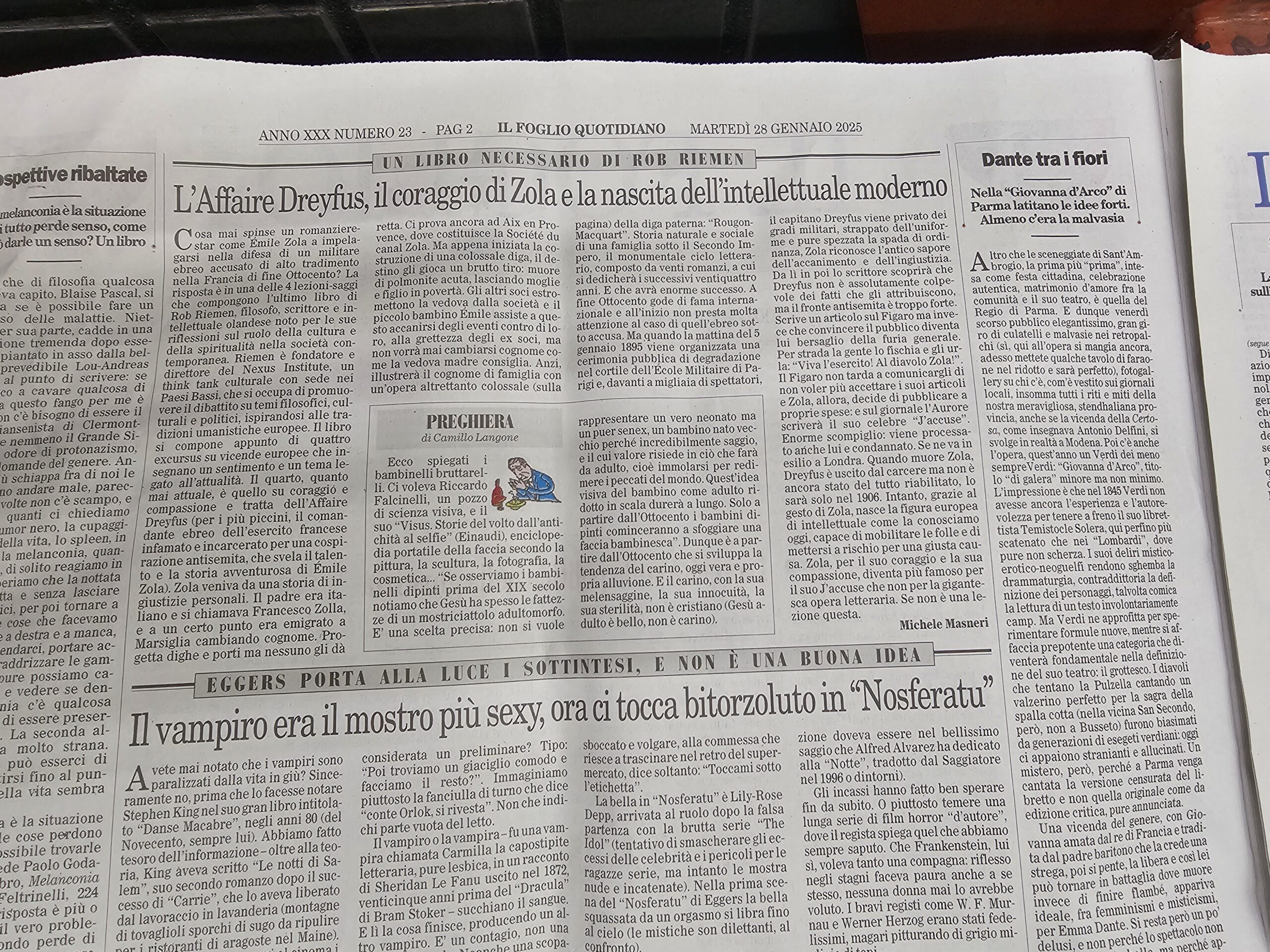Maciej Stasiński of Gazeta Wyborcza interviewed Rob Riemen.
Rob Riemen: Europę rozrywają nacjonalizmy. Musimy o nią walczyć
Read the full interview in Polish here: https://wyborcza.pl/7,75399,30525307,rob-riemen-europe-rozrywaja-nacjonalizmy-musimy-o-nia-walczyc.html#S.TD-K.C-B.2-L.2.duzy
[…]
– Chcę powiedzieć, że faszyzm to zasadniczo duch wrogi demokracji. A demokracja – co to jest? W 1938 r. Tomasz Mann przejechał Stany Zjednoczone ze wschodu na zachód z cyklem wykładów “From Coast To Coast”. Gromadził w sali po 4,5 tysiąca ludzi, do których mówił przez 2 godziny, w dodatku ze swoim okropnym niemieckim akcentem. Kto by dzisiaj powiedział, że to było możliwe?! Mówił słuchaczom: kimże on jest, emigrant z Niemiec, żeby w ojczyźnie Lincolna i Wilsona pouczać o demokracji. Ale podkreślał też, że demokracja to nie jest prawo głosu oraz wolność słowa. To instytucje demokratyczne oraz przede wszystkim duch sztuki, nauki, religii, wychowania, który dąży do uwznioślenia ludzi, żeby umieli być ludźmi. Bez ludzi wierzących w demokrację i w jej moc ulepszania ludzi, bez świeckiej edukacji liberalnej nie ma demokracji. Inaczej życie publiczne toczy rak, choroba duchowa przeżera społeczny organizm.
Demokracja to cienka warstwa cywilizacji, która krzewi wartości moralne i duchowe i broni nas przed naszymi stadnymi, zwierzęcymi popędami. Nie jest ona masowa – demokracja masowa żyje strachem, nienawiścią, odwetem, chciwością, kłamstwem. Pisał o tym Nietzsche: że kiedy edukacja jest tylko utylitarna, instrumentalizuje drugiego człowieka.
[…]
